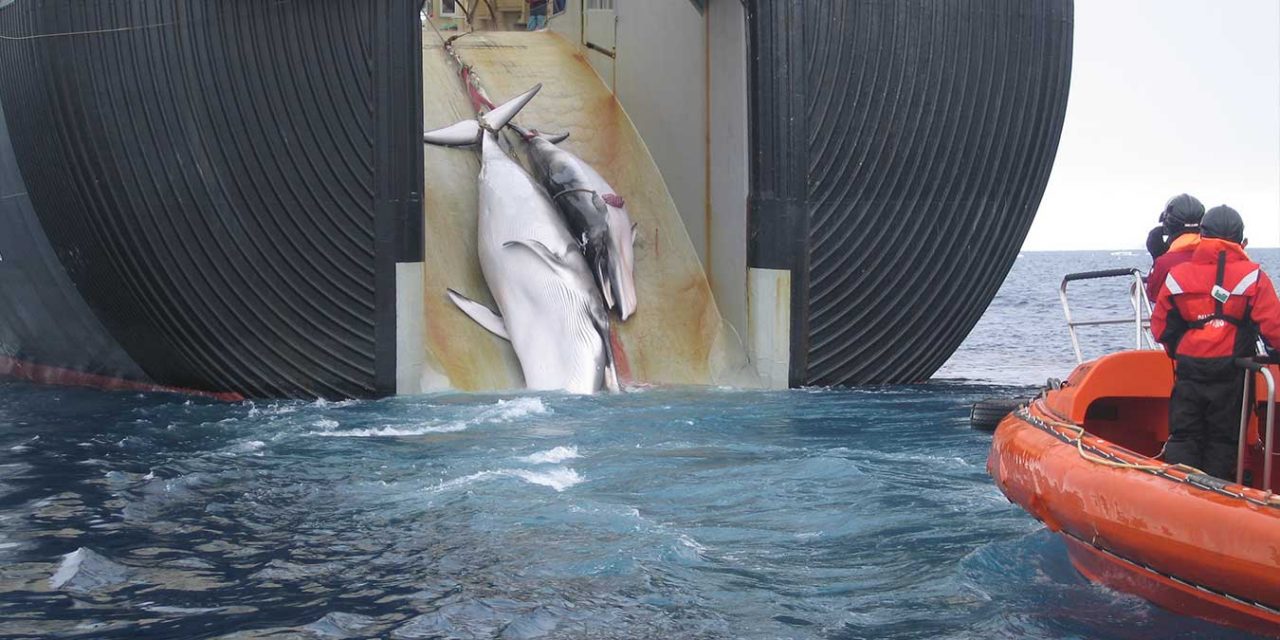Japan is Alone in Whaling Policy
Japan announced last year that it would leave the International Whaling Convention, as it was unable to convince other members, such as Australia, for a return to sustainable commercial whaling.
Previously Japan had used a clause in the IWC’s 1986 moratorium to carry out whale hunting in the Antarctic under the guise of “research”. Meat from these supposed research expeditions was then sold on the open market in Japan.
The International Court of Justice ruled in 2014 that Japan’s whaling expeditions in the Antarctic could not be considered genuine scientific research, under the International Convention for the Regulation of Whaling.
The Japanese government has rigorously defended whaling and blamed the IWC for focusing solely on the conservation of whales and not allowing for the sustainable management of marine resources.
“Much to our regret, it became apparent that the IWC did not intend to achieve the goals set forth in its Convention calling for the sustainable growth of the whaling industry, and that there was no place for differing opinions and positions within the organization,” said Chief Cabinet Secretary Yoshihide Suga in a statement released in December last year, following Japan’s announcement that it will leave the IWC.
Last year during their final “research” mission to the Antarctic, Japanese whalers killed 333 minke whales, although, in previous years, they had slaughtered up to 1,000 whales a year.
From now on Japan will no longer send vessels to the protected waters of the Antarctic but instead will commercially hunt for whales in Japan’s economic zone, up to 200 miles from the Japanese coast.
The coastal expeditions will be much smaller than the previous research trips to the Antarctic, and thousands of whales in distant waters will now likely be saved.
However, environmentalists were predictably angry at the Japanese decision.
“Japan leaving the IWC and defying international law to pursue its commercial whaling ambitions is renegade, retrograde and myopic, it is undermining its international reputation for an industry whose days are so clearly numbered, to produce a product for which demand has plummeted,” said Kitty Block, president of Humane Society International, in a statement.
No Longer Popular
But the Japanese whaling industry cannot buck trends in what the Japanese population likes to eat. The Japanese are fast losing their appetite for whale meat. Domestic consumption was once 200,000 tonnes a year in the 1960s, but in recent years has slumped to just 5,000 tonnes annually.
“The palates of the Japanese people have moved on. They have lost their yen for whale meat, even as their government has spent billions in taxpayer yen trying to prop up this economic loser. What we are seeing is the beginning of the end of Japanese whaling,” Patrick Ramage, director of marine conservation at the International Fund for Animal Welfare, told the Guardian.
But the Japanese coastal communities who have depended on the whaling industry for hundreds of years have welcomed the news that commercial whaling has resumed.
“This is a small industry, but I am proud of hunting whales. People have hunted whales for more than 400 years in my hometown,” Kai, a senior fishery official in Taiji – whose annual dolphin hunts have caused an international outcry, told a crowd of several dozen politicians, local officials and whalers in Kushiro before the boats left.
Another local official, Shinetsu Oikawa, from the remote town on Ayukawa on the southeast coast of Japan, told the Guardian that the area had been badly damaged by the 2011 tsunami and he hoped a resumption of commercial whaling would bring tourists to the area.
“Ayukawa is very remote, road access is poor and there’s no space for industry, so whaling is the best way for the town to make the most of its natural resources. Now we want tourists to come and eat whale meat, spend money and help us truly recover from the disaster,” Oikawa said.]]>
- Why is California So at Risk from Wildfires? - 13th November 2019
- Carbon Offsetting is Growing but Does it Make a Difference? - 11th November 2019
- Three Confirmed Dead as Australia Prepares for “Catastrophic” Bushfires - 11th November 2019






